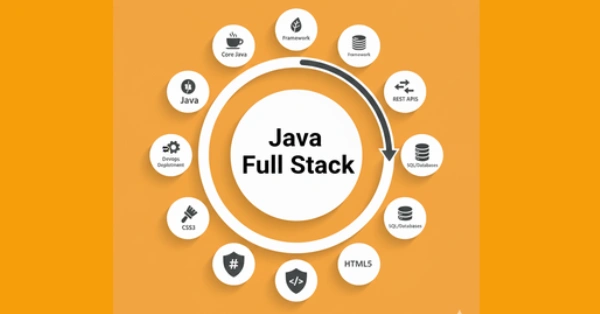How Real Projects Elevate a Java Full Stack Developer Course
In the fast-evolving world of software development, theoretical knowledge alone is no longer enough to succeed. Employers today are looking for professionals who can apply concepts in real-world scenarios, solve problems, and deliver functional solutions. That’s where real projects make a lasting impact in a Java course. A well-designed course doesn’t just teach you how to code — it prepares you to build, deploy, and manage end-to-end applications using modern technologies. Real-world project work turns learners into confident developers who can handle both front-end and back-end challenges seamlessly.
In our previous blog, we discussed why Java full stack training remains a top career choice. Building on that discussion, this article takes a closer look at how practical, real-world project experience enhances the value of a professional training program and prepares aspiring developers for real industry challenges.
Why Real Projects Are Essential in a Java Full Stack Developer Course
A Java full stack developer is responsible for managing the complete software development cycle — from user interface design and business logic to database management and server integration. Real projects help students put all these components together and understand how they interact in a live environment.
-
Hands-On Learning Builds Confidence
Working on live projects helps you apply classroom concepts to practical challenges. You gain first-hand experience with debugging, testing, and version control tools like Git. This experience builds confidence and gives you the ability to tackle real coding problems without hesitation.
-
Prepares You for Real-World Work Environments
Real projects expose learners to workflows commonly used in the industry — agile development, sprint planning, and collaboration using platforms like GitHub and Jira. These experiences are crucial because they mirror what happens inside real IT teams, giving you a strong professional edge.
-
Strengthens Your Resume and Portfolio
Recruiters want proof that you can build and deliver projects, not just write code snippets. Completing hands-on projects during your training helps you build an impressive portfolio that showcases your ability to handle complex technical tasks. It becomes your biggest asset during job interviews.
-
Bridges the Gap Between Learning and Employment
Many IT training institutes today focus on project-based learning because it helps bridge the gap between education and employment. Through mentorship, guided assignments, and capstone projects, learners not only gain technical expertise but also develop communication and teamwork skills that employers appreciate.
-
Enhances Problem-Solving and Critical Thinking
Unlike textbook exercises, real-world projects require logical thinking, creativity, and the ability to overcome challenges. You’ll learn how to manage errors, optimize performance, and make informed architectural decisions — skills that are highly valued in the tech industry.
-
Real Projects Turn Theory into Practical Expertise
A Java full stack development course that emphasizes real projects ensures that you graduate as a job-ready professional. You’ll understand how to integrate APIs, secure applications, manage data, and deploy solutions — all of which are essential skills for a successful full stack developer career.
Conclusion
Incorporating real-world projects into your learning journey transforms you from a student into a problem-solver. It equips you with the technical depth and practical exposure employers value most.
If you’re serious about building a strong tech career, consider enrolling in a Java full stack developer course that emphasizes hands-on projects, expert mentorship, and placement support. The right training can help you master both front-end and back-end skills — making you a complete developer ready for real-world success. For more details or enrollment, contact us.






